
To include your event in the Briefing and Live Calendar, please fill out this form.
Weather: Mostly sunny. A chance of showers and thunderstorms in the afternoon. Highs in the mid 90s. West winds around 5 mph, becoming north around 5 mph in the afternoon. Chance of rain 50 percent. Heat index values up to 110. Wednesday Night: Mostly cloudy in the evening, then becoming partly cloudy. A slight chance of showers and thunderstorms. Lows in the mid 70s. Northeast winds around 5 mph. Chance of rain 20 percent.
- Daily weather briefing from the National Weather Service in Jacksonville here.
- Drought conditions here. (What is the Keetch-Byram drought index?).
- Check today’s tides in Flagler Beach here.
- tropical cyclone activity here, and even more details here.
Today at a Glance:
Election Primary Early Voting is available today from 10 a.m. to 6 p.m. at four locations. Any registered and qualified voter who is eligible to vote in a county-wide election may vote in person at the early voting site. According to Florida law, every voter must present a Florida driver’s license, a Florida identification card or another form of acceptable picture and signature identification in order to vote. If you do not present the required identification or if your eligibility cannot be determined, you will only be permitted to vote a provisional ballot. Don’t forget your ID. A couple of secure drop boxes that Ron DeSantis and the GOP legislature haven’t yet banned (also known as Secure Ballot Intake Stations) are available at the entrance of the Elections Office and at any early voting site during voting hours. The locations are as follows:
- Flagler County Elections Supervisor’s Office, Government Services Building, 1769 East Moody Boulevard, Bunnell.
- Flagler County Public Library, 2500 Palm Coast Pkwy NW, Palm Coast.
- Palm Coast Community Center, 305 Palm Coast Parkway NE.
- Flagler Beach United Methodist Church, 1520 South Daytona Avenue, Flagler Beach.
See a sample ballot here. See the Live Interviews with all local candidates below.
Flagler County School Board Derek Barrs, Dist. 3 Janie Ruddy, Dist. 3 Lauren Ramirez, Dist. 5 Vincent Sullivan, Dist. 5 Flagler County Commission Andy Dance, Dist. 1 Fernando Melendez, Dist. 1 Kim Carney, Dist. 3 Bill Clark, Dist. 3 Nick Klufas, Dist. 3 Ed Danko, Dist. 5 Pam Richardson, Dist. 5 Palm Coast Mayor David Alfin Peter Johnson Alan Lowe Cornelia Manfre Mike Norris Palm Coast City Council Kathy Austrino, Dist. 1 Shara Brodsky, Dist. 1 Ty Miller, Dist. 1 Jeffrey Seib, Dist. 1 Dana Stancel, Dist. 3 Ray Stevens, Dist. 3 Andrew Werner, Dist. 3 |
River to Sea Transportation Planning Organization (TPO) Bicycle/Pedestrian Advisory Committee meets at 9 a.m. at the Airline Room at the Daytona Beach International Airport. The TPO’s planning oversight includes all of Volusia County and the developed areas of eastern Flagler County including Beverly Beach and Flagler Beach as well as portions of the cities of Palm Coast and Bunnell, with board member representation from each of those jurisdictions. The committee is responsible for reviewing plans, policies, and procedures and rank priority projects as they relate to bicycle and pedestrian issues within the TPO planning area. See the full agendas here. To join the meeting electronically, go here.
The Flagler County Canvassing Board meets today at the Flagler County Supervisor of Elections office, Government Services Building, 1769 East Moody Boulevard, Bunnell. The meeting is open to the public. Check the time in the sidebar or in this chart, which includes the full year’s meeting schedule (the pdf schedule does not include the dates and times of required Canvassing Board meetings which may be necessary due to a recount called locally or statewide.) The board is chaired by County Judge Andrea Totten. This Election Year’s board members are Supervisor of Elections Kaiti Lenhart and County Commissioner Dave Sullivan. The alternates are County Judge Melissa Distler and County Commissioner Donald O’Brien. March-April meetings are for the presidential preference primary, such as it is. See all legal notices from the Supervisor of Elections, including updated lists of those ineligible to vote, here.
Separation Chat, Open Discussion: The Atlantic Chapter of Americans United for the Separation of Church and State hosts an open, freewheeling discussion on the topic here in our community, around Florida and throughout the United States, noon to 1 p.m. at Pine Lakes Golf Club Clubhouse Pub & Grillroom (no purchase is necessary), 400 Pine Lakes Pkwy, Palm Coast (0.7 miles from Belle Terre Parkway). Call (386) 445-0852 for best directions. All are welcome! Everyone’s voice is important. For further information email [email protected] or call Merrill at 804-914-4460.
Weekly Chess Club for Teens, Ages 9-18, at the Flagler County Public Library: Do you enjoy Chess, trying out new moves, or even like some friendly competition? Come visit the Flagler County Public Library at the Teen Spot every Wednesday from 4 to 5 p.m. for Chess Club. Everyone is welcome, for beginners who want to learn how to play all the way to advanced players. For more information contact the Youth Service department 386-446-6763 ext. 3714 or email us at [email protected]
The Circle of Light Course in Miracles study group meets at a private residence in Palm Coast every Wednesday at 1:20 PM. There is a $2 love donation that goes to the store for the use of their room. If you have your own book, please bring it. All students of the Course are welcome. There is also an introductory group at 1:00 PM. The group is facilitated by Aynne McAvoy, who can be reached at [email protected] for location and information.
In medias res: From The Economist’s 1843 Magazine piece on the Proud Boys: “Should Trump win, he will seek to legitimise further the American far right, not only by liberating the Proud Boys, but also by inviting its factions to ally with him during his second term. Besides the Proud Boys, several leaders of the Oath Keepers, an extremist militia, were convicted of seditious conspiracy for the Capitol attack. They too may be freed. Other ideologically adjacent groups may well feel empowered: Christian nationalists, anti-government militias and bands of skinheads and neo-Nazis. The fallout could be dramatic. Trump’s first term released violent energies on the right, starting in August 2017, in Charlottesville, Virginia, when a neo-Nazi at a Unite the Right rally rammed his car into a crowd of counter-protesters, killing a 32-year-old woman. Seven years on, America’s far right “is as emboldened, as strong, as ready for violence as it has ever been”, said Jonathan Lewis, a researcher at George Washington University, who studies extremist groups. In their most recent public assessment of domestic terrorism, the fbi and the Department of Homeland Security warned that threats from “anti-government or anti-authority” groups – they identified the Proud Boys as one of them – were on the rise. This danger could be exacerbated by “high-profile elections and campaigns”. The attempted assassination of Trump on July 13th has injected violence into an already fraught campaign. Even before that, two in three Americans worried that there would be violence after election day. Lewis thought that extremist cells inspired by a Trump re-election would strike “softer targets…the local prosecutor, the local judge, the local election official”.”
—P.T.
View this profile on Instagram
![]()
The Live Calendar is a compendium of local and regional political, civic and cultural events. You can input your own calendar events directly onto the site as you wish them to appear (pending approval of course). To include your event in the Live Calendar, please fill out this form.
January 2026
Flagler Beach United Methodist Church Food Pantry
Flagler County Drug Court Convenes
Model Yacht Club Races at the Pond in Palm Coast’s Town Center
Palm Coast Beautification and Environmental Advisory Committee
Flagler Beach City Commission Meeting
Free For All Fridays With Host David Ayres on WNZF
Scenic A1A Pride Meeting
Friday Blue Forum
Acoustic Jam Circle At The Community Center In The Hammock
For the full calendar, go here.

Quote: Stressing exceptionalist self-confidence over Puritan self-doubt also provides cover for however our leaders have wielded this unique mandate. Like claiming manifest destiny over the American continent, no matter that “since the beginning of the United States, the continuing presence of Native Americans has been a constant threat to tales of American exceptionalism,” Van Engen writes, a reminder of how stories of settlers fleeing religious persecution “run up uncomfortably against the colonial terror these same people so often inflicted on others.” Like embracing our identity as a nation of immigrants — at the core of many interpretations of exceptionalism, including Reagan’s — while often slamming the door shut in the name of culture or wealth. Like launching military incursions across the globe and treating any misgivings about such enterprises as evidence of the doubters’ un-Americanism. American exceptionalism can be morally aspirational. It can also justify whatever we wish to believe about ourselves.
–From Carlos Lazoda’s “Is America a City on a Hill or a Nation on the Precipice?” The New York Times July 2, 2024.







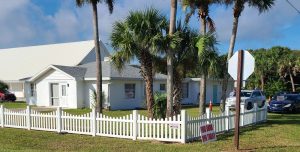

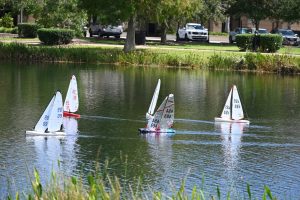
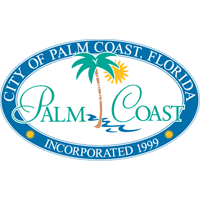
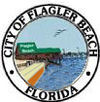



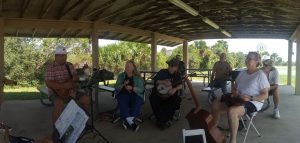






















Pogo says
@V-J Day
https://www.google.com/search?q=V-J+Day
Evidence, testimony, opinion…
https://www.theatlantic.com/magazine/archive/1946/12/if-the-atomic-bomb-had-not-been-used/376238/
Make of it what you will.
Laurel says
Pogo! You were missed!
:)
Pogo says
@Laurel
Thanks. Be well.
Ray W. says
Thank you, Mr. Tristam.
Yet the potential of extreme right-wing violence has yet to reach a crescendo. As bad as the threat of political violence has become, it will likely become worse. As I have argued since early in my commenting, we are not yet at the end of the beginning of a wave of political violence in this country. And the gullible among us think it good that their leaders promise to kill, crush, slit, throw, and on and on. Malicious beckoning cannot ever be considered good.
James says
Not necessarily Ray… but I’m not a Hegelian.
As a Hegelian, I suppose it’s hard not to think a violent outcome as being a foregone conclusion… an historically logical necessity.
Just a (difference of) opinion.
Ray W. says
Thank you, James.
Ray W. says
Hello James.
I want the difference of opinion, so thank you once again. As a Hegelian, I seek to introduce ideas, concepts, options, to FlaglerLive readers.
I hope that people realize that I ask questions in many of my comments. I use terms like possibly, perhaps, it might be, I suppose, etc., in my effort to convey the possibility that I might be wrong.
Yes, I oppose the malicious among us. I heap abuse on those who intentionally seek to disinform or misinform.
I believe in the exercise of reason based upon the exercise of intellectual rigor. I understand that I might pose a bad idea in response to a commenter who poses a worse idea. Likewise, I might pose a good idea in hopes that someone will respond by posing a better idea. I don’t live in a perfect or bad world. I live in a good, better, best/bad, worse, worst world, i.e., the world of argumentation.
Once again, logic in either of its two forms, is designed to lead us to one conclusion to the exclusion of all other possible conclusions. A simplistic example of this form of reasoning is that five times five always equals twenty-five, to the exclusion of any other number. The two forms of logic are deductive reasoning and inductive reasoning.
The third form of reasoning, argumentation, is designed to enable one to select the best option from a number of other good options, or to select the least bad option from a number of other worse options. Choosing a less good option, however, does not mean it is a bad choice; it will always remain a good choice, only less good than the best choice.
These three forms of reason were taught to our founding fathers. Their era, spanning roughly 1760 to 1810, in known in academia as the Age of Reason. The Scottish Enlightenment, which fostered the Age of Reason, held sway from roughly 1690 to today, though its influence waned early in the 19th century. The eastern intellectual elite, so bashed by certain close-minded people, was and is still the bastion of the Scottish Enlightenment form of reasoning.
The political world is a world of argumentation, as is the legal world, as is the business world. A political choice is almost never a choice based solely on formal or informal logic, in which there would be only one conclusion to the exclusion of all other possible conclusions. In the political world, using Churchill’s description that democracy is the worst form of government unless or until you compare it to all other forms of government that have already been tried, all forms of government are bad. In this world, it is never a good choice to be a Republican. Likewise, it is never a good choice to be a Democrat. The only idea is whether Republican party choice is less bad than Democratic party choics. Why do you think that Madison described party politics as “pestilential?” Democracy, as a form of government, is the least bad of those many bad options available to us, according to Churchill. Tyranny is worse, communism is worse, socialism is worse, populist nationalism is worse, National Socialism is worse, religious extremist authoritarianism is worse.
In sum, I want people to oppose me. I want people to argue with me. I want a reasoned conservative viewpoint to be argued on the pages of FlaglerLive. I do not seek to impose my views on others, which is why I so often use other people’s views to provide, not prove, my point. I even post comments using a point I disagree with just to introduce the idea. For example, to me, clean forms of energy are the answer to multiple problems at multiple levels, but we live in an age of carbon-producing energy which sector is growing faster than the clean energy sector. It does not matter if I agree with another person’s comment, unless that person is lying, trying to harm someone, or seeking to disinform or misinform. I never respond to name-calling; it just doesn’t matter what I am called. Besides, the commenter just might be right. I have never clicked on the box letting me know who responded to a comment. If I happen to miss the response, okay. If I read it, I might respond. We face many great and small challenges on a daily basis. Some are molehills from which some build mountains. Others are transformative that others would have us all ignore. Reason based on the exercise of intellectual rigor is, in my opinion, the best of many good ways, to solve problems. Some among us think force is the best way to solve problems. To those people, punitive legislation is the answer.
Oy, vey!
James says
Hope I didn’t upset you Ray.
It’s just that my appreciation of German Idealism began and ended with Kant… and that was a loooong time ago.
I unfortunately (or fortunately, depending on how you look at it) skipped over 19th century philosophy for the most part (due to scheduling conflicts that never worked out).
So it’s not that I have anything against Hegel… in fact, I know very little of the specifics of Hegel’s philosophy.
Except, I suppose,in contrast to Kant.
A quick perusal of Wikipedia brought back quite a few memories.
But as good as the Wikipedia articles are, I know from experience that working through a complex philosophical work such as Hegel’s “Science of Logic” requires more careful, time consuming attention than I’d care to devote to at this time.
Nevertheless, his “Philosophy of History” seems more accessible… so perhaps I’ll add it to my “stack.”
Thanks,Ray. :-( :-)
Laurel says
Ray W.: I agree; I hope we’re wrong. I’d like to think that maybe people would just get tired.
Ray W. says
Chevron announces, per Reuters, a technological breakthrough in deep-water drilling technology. Prior to the implementation of the advanced technology, deep-water drilling limits were 15,000 of water pressure per square inch. Now? 20,000 psi.
Chevron’s $5.7 billion Anchor project is anticipated to eventually yield 75,000 barrels of crude oil and 28 million cubic feet of natural gas per day from a field estimated to hold 440 million barrels of oil through seven wells connected to a “floating production platform” located 140 miles from the Louisiana shore.
Beacon Offshore Energy and BP announced similar plans for their respective Shanandoah and Kaskida fields. BP located a deepwater oil reservoir in 2006, but it was unable to exploit the find until now.
Obviously, Chevron thinks a large deep-water undersea pool of oil that never needs to be fracked can be exploited cheaply enough to be profitable over time. An estimated 440 million barrels of oil is a lot of oil. At $80 per barrel in today’s money, that translates to over $35 billion. Fracking costs an estimated $25 per barrel, and dropping, to extract, again, in today’s money. If the floating platform can offload oil directly to supertankers, which is a common practice in the industry, that means a tremendous savings in transport costs.
For the gullible among us who buy into the false claim that Democrats oppose exploitation of crude oil and natural gas resources, please understand that there is a difference between political rhetoric and actions in the field. The only difference between Democratic and Republican administrations, re: extracting energy, is that Democrats enacts regulations designed to ensure safety and Republicans role back the regulations whenever possible.
For example, when fracking began to accelerate in volume some 15 years ago, the Illinois legislature passed a comprehensive regulatory scheme. An oil industry spokesman was quoted as supporting the regulations because it allowed the industry to more accurately assess the overall potential costs of drilling and fracking. It was the stability offered by the new laws that would allow the industry to choose when and where to drill. If a huge, easily accessible field offered less expensive extraction costs, then they would drill in Illinois shale fields. If not, then the industry would not drill.
This is why the Permian Basin is so active. The wells already exist, so energy companies don’t have to drill vertically down into a shale oil formation. They go down the old pipe (there are roughly 150,000 already existing wells in the Permian drilled over the past one hundred years) and drill horizontally over and over again, like bicycle spokes. Pipelines to transport the oil and gas to Houston and Corpus Christi already exist. Why would anyone drill a brand-new oil well in Montana or North Dakota and build a brand-new pipeline and build the infrastrure to link into a pipeline network when what they need to extract and transport oil already exists in the Permian Basin?
Oil companies will spend the money to drill wherever they think they can make the most money. If it is two miles down in the Gulf or 500 miles away from Houston and Corpus Christi in the Permian, they will drill for the most revenue at the lowest cost. The goal for the government is to lessen the potential for disaster, because we all know who pays for oil wells that pollute after the oil is depleted and the oil company walks away. Without regulation, after the oil companies walk away, state after state spends money to cap the wells. With regulation, the oil companies cap their own depleted wells. Just ask North Dakota inspectors how many old, depleted wells are abandoned uncapped by the oil companies.
Ray W. says
In 2020, North Dakota announced the expenditure of $66 million in federal pandemic funds to cap 239 abandoned oil wells and the restore 2,000 acres of polluted land.
According the The Interstate Oil and Gas Compact Commission, 56,600 “orphan wells” exist in 30 states. Depending on complexity, costs to plug wells range from $3,700 to $97.626. Most states and the federal government require drillers to post bonds before drilling. If they plug the well after it is depleted and clean up the surrounding land, then the drillers get the bond money back. What happens if the cost of plugging the well is higher than the bond? Orphan wells? Who pays to plug the orphan wells?